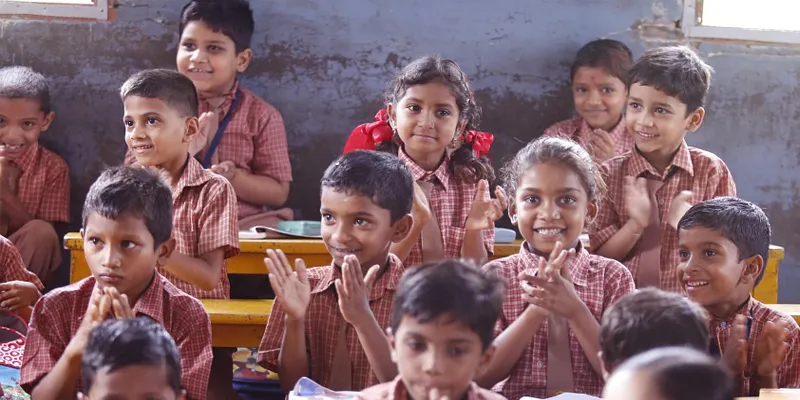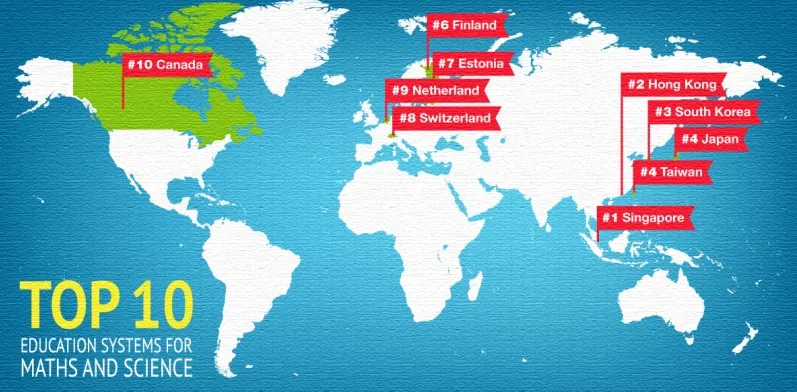Are we really serious about our children’s education?
I am afraid, not quite. As a mother and a stakeholder in the Indian education sector I feel really concerned about the state of the country’s education infrastructure. To begin with, our education system is a legacy of the British rule. However, we could never find the time to customise it to our requirements. The National Policy on Education (NPE) is revised once every decade or two, but still falls short of expectations. However, there have been some well-received developments in the last couple of years in this regard. At present, NPE is under revision as a number of recent developments in science, engineering etc., need to be incorporated.

What are we teaching our kids? Concepts, algorithms and theories that will probably never be of use to them in their entire lifetime. Let’s be honest; how many times have we, as adults, used whatever taught in school in our daily lives? Most of the syllabi seem to be redundant in the modern-day world. Why should children learn how a carburetor works when all the automobiles run on multi-point fuel injection systems? It is good to know that a carburetor existed at some point of time but why waste our energies in studying it in detail?
I am also aware that in certain States students in school and undergraduate studies are taught the various schedules of the Indian Companies Act, 1956, even though it is close to two years since Companies Act, 2013 has been notified. At present, National Curriculum Framework, 2005 guides the syllabus being taught in Indian schools. This framework itself is almost 12 years old, and one can just imagine the archaic nature of concepts being taught. In most of the developed world, curricula is refreshed every year, or at least once every two years.
Unfortunately, in India, our kids master the art of rote in the junior classes itself. Moreover, our current system of evaluation in schools encourages students to adopt unscrupulous techniques. Most subjects imparted, even in higher classes, are found to be lacking in basic foundation. The results of Programme for International Student Assessment (PISA), which was conducted by Organisation for Economic Co-operation and Development (OECD) in 2012 expose our inefficiency – we stood second to last and refused to participate in future editions of this global assessment.
Therefore, the need of the hour is to adopt best practices, by including new subjects and concepts required in the 21st century. Some of these subjects could be life skills, global citizenship, entrepreneurship, Internet of Things (IoT), artificial intelligence or any other relevant topics that capture the imagination of Gen Z.
Lessons from the best schooling systems in the world
As per a joint study conducted in 2015 by OECD, Singapore takes the first spot in terms quality of education for maths and science across the globe. The syllabus covers all the topics and subjects that are required for building a successful career in the 21st century. The K-12, higher education programme and skilling component are completely integrated and work together for the benefit of the student.

Private tutoring is recognised as a mandatory supplement to formal education system, with $150-$250 being spent every month. The home tutors work along with the teachers at school to ensure learning, and mentorship happens even after school. The Straits Times reported that more than 70 percent of parents sign their children up for extra classes outside of school hours to help them brush up on English and mathematics. In order to develop a global citizen, schools have reduced over-emphasis on academics and are encouraging students to pursue skilling and outdoor activities also.
The German dual system of vocational education effectively integrates work-based and school-based learning to prepare apprentices for a successful transition to full-time employment. The model has received a number of accolades from multi-lateral organisations such as OECD, UNICEF etc. The students are mentored to take up a trade of choice in school and develop skills that will ultimately help him/her in achieving success as a professional.
Forgone conclusion
I would like to offer the following suggestions for school education in the proposed NPE:
- School curriculum to be up to date and refreshed on a periodic basisIncorporate inputs and feedback from students and parents
- Integrate life skills as an integral part of the curricula
- Encourage supplemental learning sessions at home through coaching and tuition. If Singapore can do it so successfully then why can’t we?
- Boost research and innovation activities in schools
- Incentivise adoption of technology
- Improve quality of hard and soft infrastructure supporting the school education system;
I am confident that if some of these suggestions are effectively accepted and implemented we will be able to notice a drastic change in the system within our lifetime. Time and again we have been made to believe that the current government has the will to take tough decisions, but does it have the intent? I hope so.
(Disclaimer: The views and opinions expressed in this article are those of the author and do not necessarily reflect the views of YourStory.)







